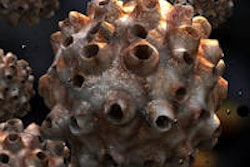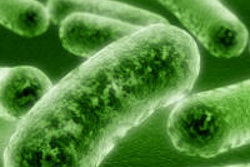Researchers from the Case Western Reserve University School of Dental Medicine and the University Hospitals (UH) Case Medical Center will collaborate on a pilot study to examine whether naturally occurring oral antibacterial proteins can predict the development of oral cancers.
The researchers will investigate how high levels of human beta-defensin-3 (hBD-3) in saliva and precancerous tissues can be used to detect oral cancers faster and less invasively than traditional methods, according to lead investigator Aaron Weinberg, DMD, PhD, an associate dean and the chair of the department of biological sciences at the dental school. They have found elevated levels of this protein in precancerous lesions and some oral cancers, and it may provide early identification of these frequently asymptomatic cancers.
The hBD-3 peptide, which is found in the epithelial lining of the mouth, acts as a natural antibiotic in the body's immune system. HBD-3 prevents the estimated 700 species of bacteria as well as viruses and fungi that live in the mouth from invading the body and causing disease.
The researchers will recruit 60 participants, seeking treatment at UH Case Medical Center for possible oral cancers. They are also interested in patients with human papillomavirus (HPV), as this virus is increasingly correlated with increased incidence of head and neck cancer.
The researchers have found that hBD3 is overexpressed in the early stage of HPV and non-HPV related head and neck cancers. Dr. Weinberg's lab has developed an assay to measure hBD-3 levels in saliva, serum, and tissue samples.
Dr. Weinberg will work with co-investigator Chad Zender, MD, from University Hospitals Case Medical Center's ENT Institute, to further study the role of hBD-3 in the development of head and neck cancer associated ant not associated with HPV.
"HBD3 has great potential as an important biomarker for cancerous lesions in the oral cavity," Dr. Zender said in a press release. "This protein has the potential to help us predict which lesions are noncancerous versus those that are malignant. If we can identify which lesions are more aggressive, this could have a big impact on cure rates for this type of cancer."
The researchers hope to find a way to diagnose oral cancers in the earliest, more treatable stages, and eventually halt cancer growth once diagnosed.



















